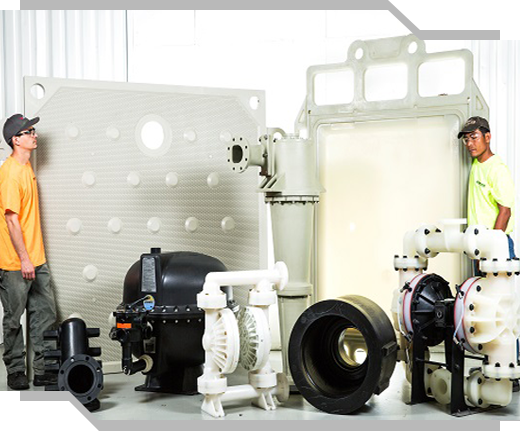Plastic manufacturing is a global industry that has profoundly shaped our world. From the simplest of daily items such as food containers, water bottles, and shopping bags to more complex products like automotive parts and medical devices, plastic is omnipresent. The industry itself is an economic powerhouse, providing employment to millions while being a significant contributor to the GDP of many nations. Today, countries from all corners of the world – developed, developing, and underdeveloped alike – partake in plastic manufacturing, making it a truly ubiquitous phenomenon.
In this article, we will explore the various ways in which plastic manufacturing is transforming our world. We will look at how this relatively inexpensive material has enabled a plethora of new products and technologies, as well as examine the evolving environmental impacts and potential solutions.
The Inexpensive Yet Versatile Nature of Plastic
Plastic’s affordability and versatility make it an attractive option for manufacturers across the world. Its low cost and durability make it a popular choice for everything from consumer products to engineering applications, particularly in the automotive industry. Plastic can be formed into virtually any shape or size – making it an ideal substitute for traditional materials such as metal, rubber, and wood – while also being lightweight and resistant to corrosion.
In addition, plastic is also non-conductive, which makes it a great choice for products that require insulation. Furthermore, plastic can be easily dyed and colored to give various shades and hues without additional cost. These features make it an attractive choice for industries such as fashion, toys, electronics, and more.
Plastic Manufacturing’s Impact on the Environment
While plastic has surely contributed to a number of advances in the world, it is also having a major impact on the environment. Plastic pollution has become an increasingly pressing issue as people across the globe are now exposed to plastic waste on a daily basis. From microplastics in oceans and waterways to landfills overflowing with discarded plastics, this problem continues to grow – threatening both marine life and human health.
The good news is that there are solutions to this environmental emergency. The first step in combatting plastic pollution is investing in sustainable practices such as recycling, utilizing renewable resources, and reducing single-use plastics. Additionally, plastic molding companies should also invest in technologies such as selective laser sintering (SLS) to create materials that are more biodegradable and recyclable.
The Future of Plastic Manufacturing
Though plastic manufacturing has revolutionized many aspects of life, its future remains uncertain due to the environmental impacts it is causing. However, with greater awareness surrounding this issue, more people are now searching for sustainable alternatives – leading to increased investment in renewable materials such as bamboo and palm leaves.
Aside from searching for more sustainable resources, the plastic industry should also focus on finding ways to make existing materials more efficient. This could involve developing biodegradable plastics and using renewable energy sources when manufacturing. Additionally, manufacturers should strive to create products that are designed to last – such as by utilizing reusable packaging or emphasizing post-consumer recyclability.
Ultimately, plastic manufacturing has the potential to contribute positively to the planet – if done responsibly. By investing in sustainability initiatives, plastic businesses can help shape a brighter future for generations to come.
As we move into the 21st century and beyond, it will be interesting to see how the plastic industry continues to evolve and adapt its practices to meet changing demands. With greater efforts towards finding greener and more efficient solutions, the plastic manufacturing industry could be a major force in creating a brighter – and greener – future.
Now more than ever, it is important for businesses to take proactive steps towards protecting the environment. Plastic manufacturing can no longer be viewed as an industry that simply churns out products – it must become an agent of positive change.


